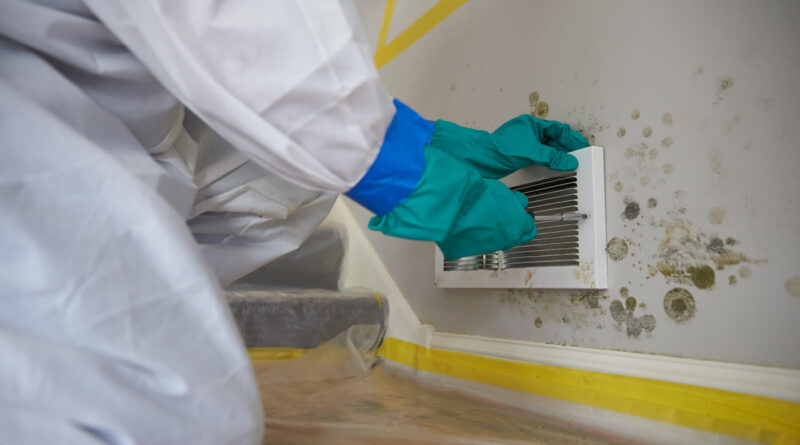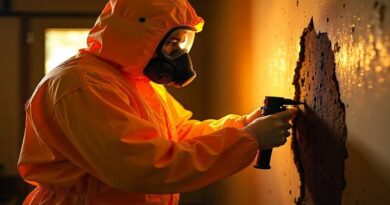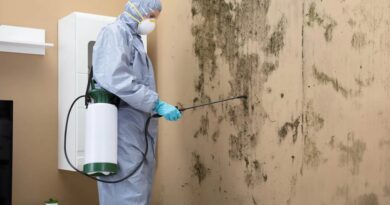Comprehensive Guide to Mold Remediation in Union, NJ
Mold growth can pose significant health risks and structural damage to properties, making prompt action essential. In Union, NJ, residents and business owners facing mold issues can rely on professional services for effective mold removal. This guide explores the intricacies of mold remediation, the importance of hiring specialists, and the steps involved in ensuring a mold-free environment.
Understanding Mold and Its Risks
Mold is a type of fungus that thrives in damp, warm environments. It reproduces through spores that can easily become airborne, leading to widespread contamination. Common types of mold found in homes include Aspergillus, Cladosporium, and Stachybotrys, often referred to as black mold.
Health Implications
Exposure to mold can lead to various health problems, particularly for individuals with respiratory issues, allergies, or weakened immune systems. Symptoms may include:
- Coughing and sneezing
- Nasal congestion
- Skin irritation
- Eye irritation
- Fatigue
In severe cases, prolonged exposure can result in more serious conditions, such as asthma attacks or chronic respiratory diseases.
Structural Damage
Beyond health concerns, mold can cause significant damage to a property. It can weaken structural components like walls, ceilings, and floors, leading to costly repairs. Mold can also damage personal belongings, including furniture and clothing, making timely intervention crucial.
Signs of Mold Infestation
Identifying mold growth early can prevent extensive damage and health risks. Here are some common signs to watch for:
Visible Mold Growth
Mold often appears as black, green, or white patches on surfaces. Check areas prone to moisture, such as bathrooms, kitchens, and basements.
Musty Odors
A persistent musty smell is a strong indicator of mold presence. If you notice this odor, it’s essential to investigate further.
Water Damage
Signs of water damage, such as stains on walls or ceilings, can indicate a mold problem. Look for leaks or condensation that may contribute to mold growth.
Allergic Reactions
If you or your family members experience unexplained allergic reactions, it may be due to mold exposure. Symptoms like sneezing, coughing, or skin rashes can signal a mold issue.
The Importance of Professional Mold Remediation
While some may consider DIY mold removal, hiring a professional mold specialist in Union, NJ , is often the best course of action. Here’s why:
Expertise and Experience
Mold remediation professionals possess the training and experience necessary to identify the type of mold and the extent of the infestation. They can develop a tailored remediation plan that effectively addresses the issue.
Advanced Equipment
Professionals use specialized equipment, such as HEPA vacuums and air scrubbers, to safely remove mold and prevent its spread. This equipment is often not available to the average homeowner.
Safety Precautions
Mold removal can be hazardous, especially when dealing with toxic varieties. Professionals follow strict safety protocols, including the use of personal protective equipment (PPE), to protect themselves and the occupants of the property.
Comprehensive Solutions
A mold expert in Union, NJ, will not only remove existing mold but also address the underlying moisture issues that caused the infestation. This holistic approach helps prevent future mold growth.
The Mold Remediation Process
Understanding the mold remediation process can help property owners know what to expect when they hire a professional service. Here’s a step-by-step overview:
Initial Assessment
The process begins with a thorough inspection of the property. The mold specialist will identify visible mold, assess moisture levels, and determine the extent of the damage.
Containment
To prevent mold spores from spreading during the removal process, the affected area will be contained. This may involve sealing off rooms and using negative air pressure to keep spores from escaping.
Mold Removal
Using specialized equipment and techniques, the remediation team will remove mold-infested materials, such as drywall or carpeting. They will also treat surfaces with antifungal solutions to eliminate any remaining spores.
Cleaning and Sanitization
After removing the mold, the area will be cleaned and sanitized. This step ensures that any residual spores are eliminated, and the indoor air quality is improved.
Restoration
Depending on the extent of the damage, restoration may involve repairing or replacing structural elements, such as drywall or flooring. The goal is to return the property to its pre-mold condition.
Preventing Future Mold Growth
Once mold has been removed, it’s essential to take steps to prevent its return. Here are some effective strategies:
Control Humidity Levels
Maintaining indoor humidity levels below 60% can help prevent mold growth. Use dehumidifiers in damp areas and ensure proper ventilation in bathrooms and kitchens.
Fix Leaks Promptly
Address any plumbing leaks or water damage immediately. Regularly inspect roofs, gutters, and downspouts to prevent water intrusion.
Improve Air Circulation
Ensure proper airflow throughout your home by using fans and opening windows when weather permits. This can help reduce moisture buildup.
Regular Inspections
Conduct routine inspections of your property, especially in areas prone to moisture. Early detection of mold can prevent extensive damage.
Choosing the Right Mold Remediation Service
Selecting a reputable mold remediation service is crucial for effective mold removal. Here are some tips for making the right choice:
Check Credentials
Ensure the company is certified by organizations such as the Institute of Inspection, Cleaning and Restoration Certification (IICRC). This certification indicates that the company adheres to industry standards.
Read Reviews
Look for customer reviews and testimonials to gauge the company’s reputation. Positive feedback from previous clients can provide insight into their reliability and effectiveness.
Request Estimates
Obtain estimates from multiple companies to compare pricing and services. Be wary of unusually low bids, as they may indicate subpar work.
Ask About Their Process
Inquire about the company’s mold remediation process and the equipment they use. A reputable service will be transparent about their methods and safety precautions.
Cost of Mold Remediation in Union, NJ
The cost of mold remediation can vary widely based on several factors, including:
Extent of Infestation
The size of the affected area and the severity of the mold growth will significantly impact the overall cost. Larger infestations typically require more time and resources to remediate.
Type of Mold
Certain types of mold, particularly toxic varieties, may require specialized removal techniques, which can increase costs.
Accessibility
If the mold is located in hard-to-reach areas, such as crawl spaces or attics, the cost may be higher due to the additional labor involved.
Additional Repairs
If structural repairs are necessary after mold removal, this will also contribute to the overall cost. It’s essential to factor in these potential expenses when budgeting for mold remediation.
Conclusion
Mold removal is a critical process for maintaining a safe and healthy living environment. In Union, NJ, residents can rely on professional mold remediation services to effectively address mold issues and prevent future growth. By understanding the risks associated with mold, recognizing the signs of infestation, and choosing the right professionals, property owners can ensure their homes and businesses remain mold-free. Taking proactive measures to control moisture and conducting regular inspections will further safeguard against mold-related problems, providing peace of mind for all occupants.
For those facing mold challenges, seeking the expertise of a mold specialist in Union, NJ, is the first step toward a healthier, safer environment.
For more information about Mold Remediation Union NJ contact Us:
Green Guard Mold Remediation Of Union
Address: 1620 US-22, Union, NJ 07083, United States
Phone: +1 908-263-1697
Email:info@greenguardmoldremediationunion.com
Website: https://www.greenguardmoldremediationunion.com/



